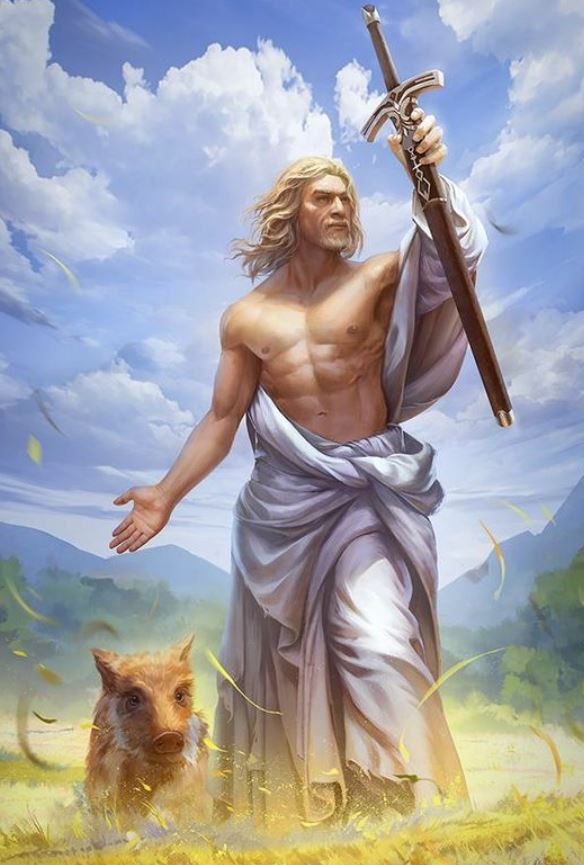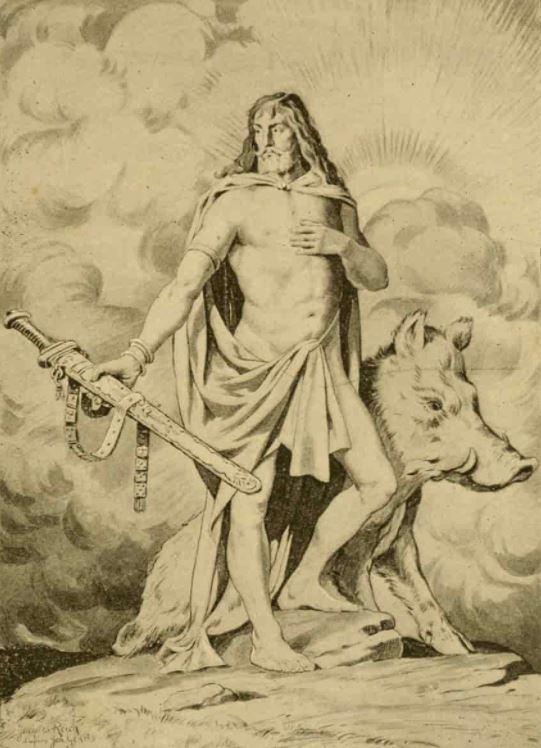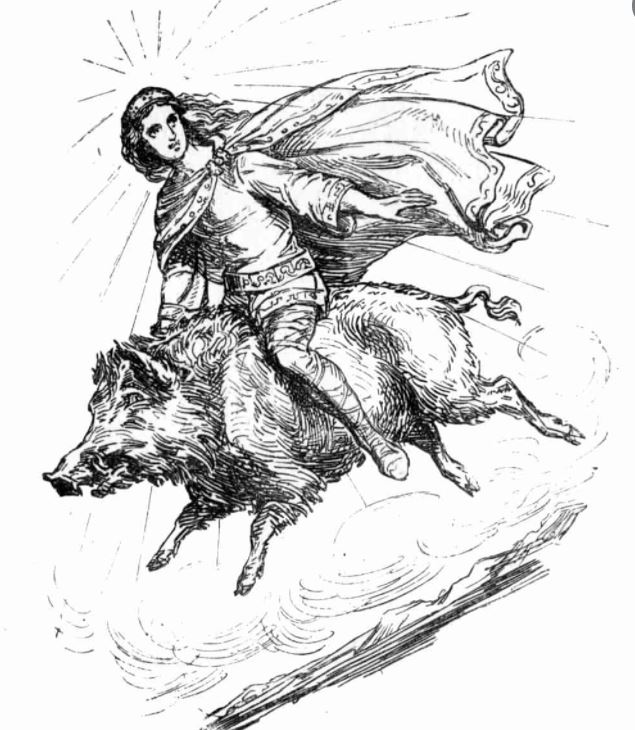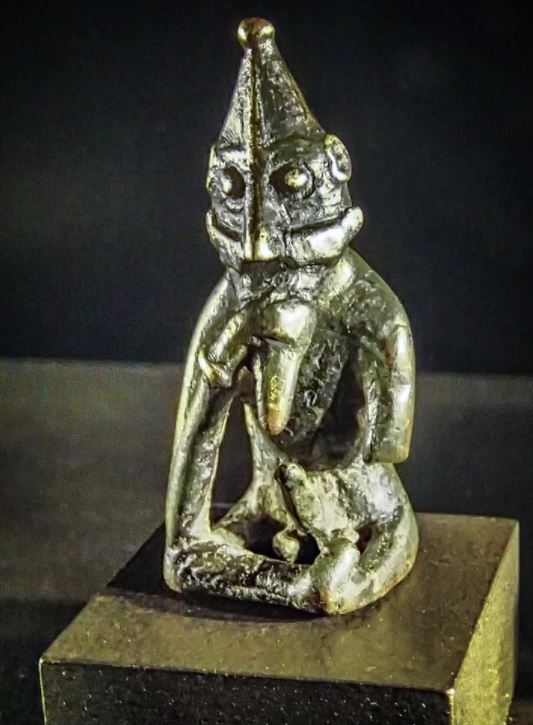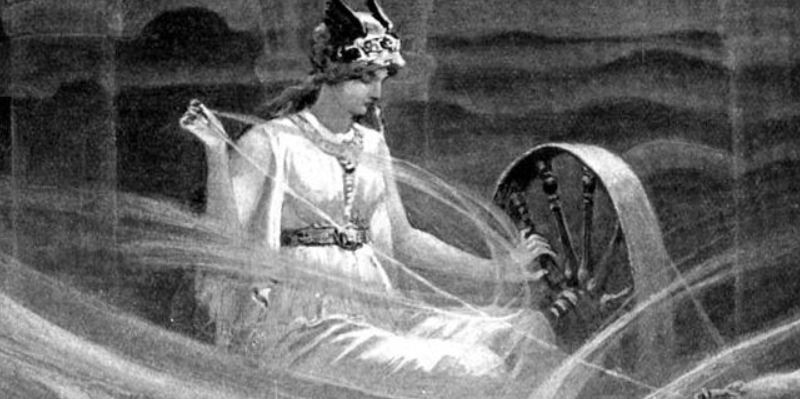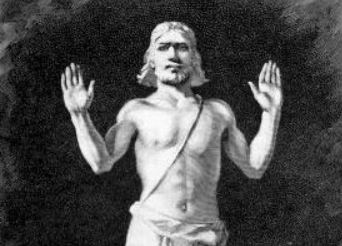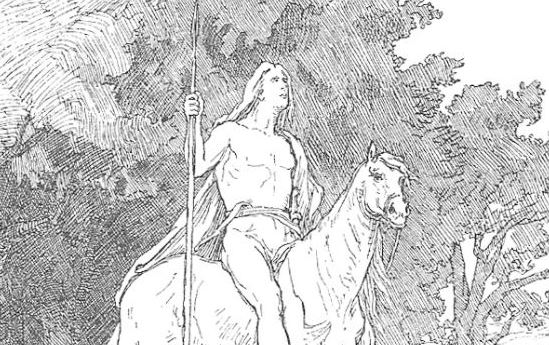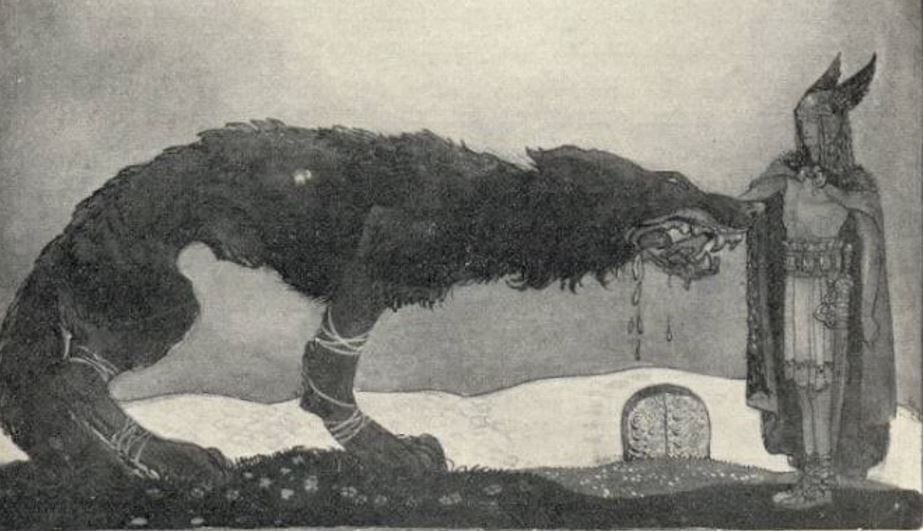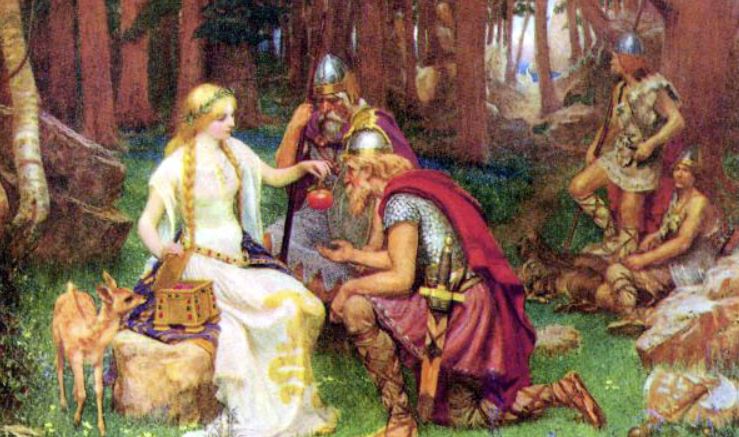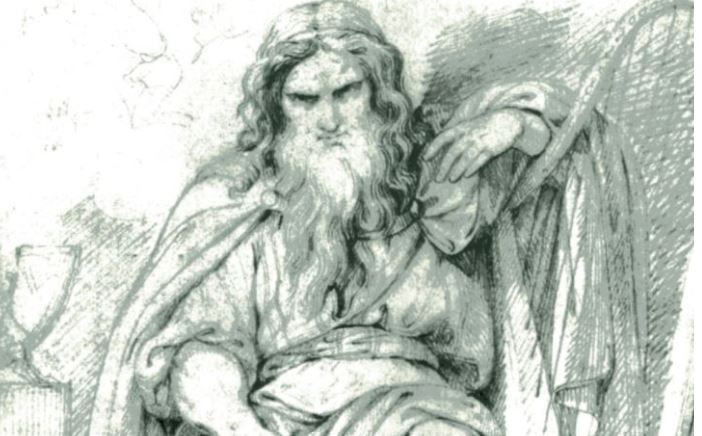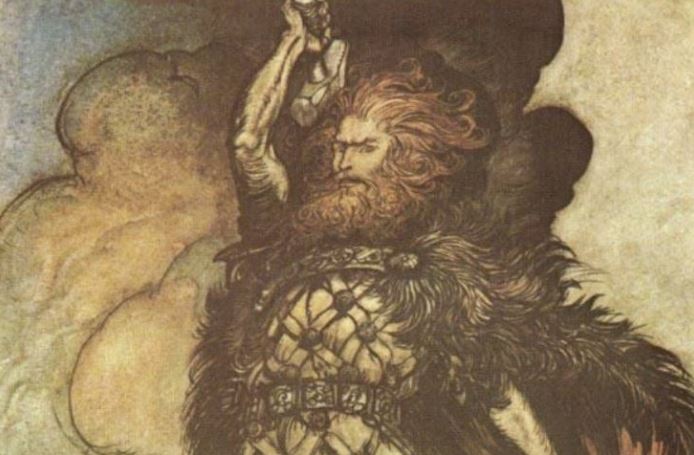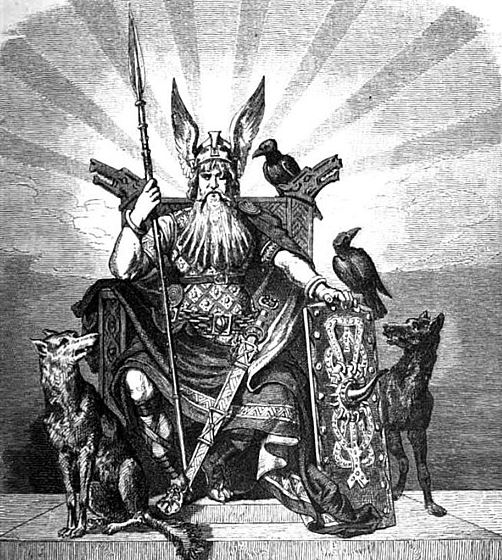Norse God Freyr, Ruler of Fertility, Peace, Rain and Sunshine
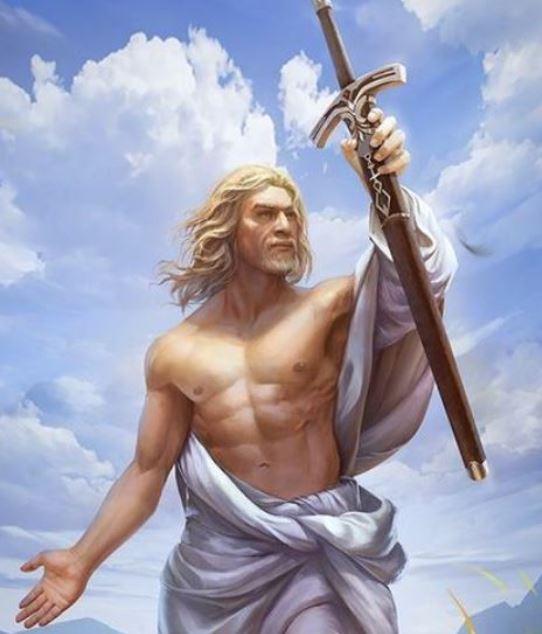
In Norse mythology, the Norse god Freyr was a prominent part of the Aesir tribe, also referred to as Yngvi, and was responsible for keeping the peace.
He was originally, a popular figure among the Vanir deities, he was taken as a hostage after the Aesir-Vanir War.
Freyr was the male counterpart of his twin sister, Freya, who was the beautiful goddess of love, fertility, battle, and death. Njord, the Norse god of the sea, is the father of Freyr.
What is Freyr the god of?
The Norse god Freyr is considered the god of peace, ruler of fertility, rain, and sunshine.
As we have already stated, the Norse god Freyr was originally a member of the Vanir tribe but eventually was incorporated into the Aesir tribe.
The Viking god Freyr married Gerd, the daughter of a giant named Gymir.
Being a god of fertility, Freyr was known to have had many lovers, including his own sister, Freya. Throughout Norse legend, Freyr held a prominent role among Odin, Thor, and Baldr.
His father, Njord, and his presumed mother, Nerthus, was also his father’s sister because incest was common in the Vanir.
A representation of the Norse god Freyr sword and golden boar
Norse god Freyr: Origin of his Name
The name of the Norse god Freyr, sometimes spelled as Frey, means “Lord” in the Old Norse language. The Germanic people revered this heathen god because many believed that Freyr was responsible for their fertile well-being and prosperity.
Interestingly enough, his sister’s name, Freya or Freyja in Old Norse, meant “Lady.”
As you can see, the names of Freyr and Freyja are quite similar.
History of the Norse god Freyr and important myths
As a member of the Vanir tribe, this Norse god of prosperity and peace was also connected to good weather and sunshine.
Son to the Norse god of the sea, Njord, and Freya’s twin brother, Freyr was a powerful symbol in Norse mythology for both the Vanir and Aesir tribes.
While the Norse god Freyr is regarded throughout Scandinavia, this deity is most popular in Sweden. However, myths of the Viking god Freyr are told in Norway and Iceland as well.
Norse legend says that Freyr resided in the land of the elves, Alfheim, which implies that he was the ruler of the elves.
Yet, there is actually no written evidence that states that the Norse god Freyr was the ruler of the elves so that is often left up to debate.
During the “fate of the gods,” also referred to as Ragnarok, the giant Surt is fated to destroy the Norse god Freyr and he was destined to do the same to Surt.
Another representation of Freyr Norse mythology
The Origin Myth of the Norse god Freyr
The famous Norse poet, Snorri Sturluson, wrote about Freyr as a powerful warrior in the Aesir-Vanir War in his Ynglinga Saga.
When the war was over, the Viking god Freyr was taken as a hostage to live among the Aesir, but eventually became a trusted and respected member of their tribe and a popular part of their legends.
The Myth of Freyr and Gerdr
This is a popular myth about Freyr’s marriage to Gerdr, the giantess.
Sturluson’s tale of Gylfaginning found within the Prose Edda tells about the time Freyr visited Odin’s throne room. He sat upon the high seat of the gods referred to as Hlithskjolf.
In this seat, one could see into all of the realms. While seated, the Norse god Freyr saw a woman raise her hands with glowing white light illuminating all of the worlds.
At that moment, the Viking god Freyr becomes depressed and lovesick over her. His father, Njord, sent a servant by the name of Skirnir to check on his son.
When the servant arrived, the god Freyr gave up his magical sword to Skirnir in trade for a favor: he wanted Skirnir to win over the fair woman for him. He returned with the good news that Gerdr, the fair giant woman, would marry Freyr.
Many Norse legends depict Freyr traveling by land, riding on a chariot driven by boars rather than horses. An Old Norse poem refers to Freyr as “the foremost of the gods.”
Nobody felt any hatred towards him. People believed that their happiness was in his hands.
Norse god Freyr Powers
Many believed that the Norse god Freyr possessed the power of prosperity and well-being in regards to wealth, health, fertility, and bountiful harvests.
Holding power over food production established Freyr as one of the most highly regarded and well-known Nordic gods throughout Germanic history.
Norse god Freyr symbols and their meaning
Freyr was typically represented with a powerful ship, a golden boar, and a magical sword that had the power to fight by itself. Let us take a look at every one of these symbols with much more detail
Norse god Freyr symbol: The golden boar
Freyr was often depicted with his fylgja, or animal spirit, the mechanical boar named Gullinborsti, meaning “Golden-Bristled.”
The golden boar, one of the main Freyr symbols
Fylgja is translated as “follower.” The golden boar was created by Brokkr and Sindri, dwarf craftsmen.
Norse god Freyr symbol: The ship
In addition to the boar, another symbol correlated to Freyr was his ship, Skidbladnir. It was a ship that the wind always favors and can be downsized to fit into Freyr’s pocket.
The Scandinavian’s explored by water so ships were a symbolic and important part of their culture.
Skidbladnir means “assembled from pieces of thin wood.” This magical ship was crafted by the same dwarves, Brokkr and Sindri, that made Gullinborsti.
Some additional facts about Freyr in Norse mythology
Snorri Sturluson, a well-known Icelandic historian, and poet describes Freyr as being “the most renowned of the Aesir.”
The Norse god Freyr was glorified for a good harvest and to keep the peace. It was Snorri Sturluson who also noted that Gullinbursti could fly and run better than a horse and his mane and whiskers would glow creating light wherever he went, even in the dark.
In many Nordic myths, the Norse god Freyr is represented with his spirit animal or fylgja, Gullinborsti the Boar.
As a result of that matter, in medieval Iceland, followers of Freyr traveled across the lands by chariot with a statue of this god.
A statue of the Norse god Freyr
Tacitus, a Roman historian, ascertains the symbolism of this ritual journey. As the chariot arrived in the villages, people stopped what they were doing and celebrated peace and a good time without worry.

